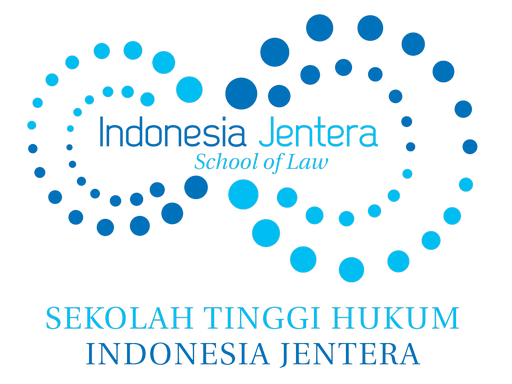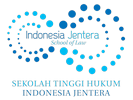
Both candidates were largely silent on past and current human rights issues in the country.
The first televised debate in Indonesia’s presidential election was set to focus on “law, human rights, corruption, and terrorism.” But viewers expecting a thorough and thoughtful discussion of the country’s major human rights issues were likely left disappointed. Not surprisingly, political point-scoring got in the way of credible commitments, and Indonesian media will need to keep pressing the candidates for meaningful answers – on persecution of minorities, redress for past abuses, and much more. The next debate is scheduled for February 17.
In April 2019, Indonesians will vote in a face-off between incumbent Joko “Jokowi” Widodo and Prabowo Subianto, a former military general. Prabowo is also a former in-law to Suharto, the military-backed ruler who governed the country for 31 years, from 1967 to 1998. Prabowo served as the commander of the Army’s Special Forces under Suharto. Prabowo has been widely accused of being involved in human rights abuses, including the abductions of pro-democracy activists in the months leading up to the end of the Suharto regime.
In his opening speech at the debate, Prabowo made no specific promises on human rights. And while Jokowi said he would protect and fulfill not only the civil and political rights of people in Indonesia, but also their economic, social, and cultural rights, he gave no detail on the specifics.
Silence on Current and Past Abuses
On January 13, just days before the presidential debate, angry mobs dispersed a Christian congregation during Sunday service at a church in North Sumatra, citing a supposed “lack of building permit.” Neither of the two presidential candidates condemned or mentioned this incident. Nor did they mention past cases where places of worship belonging to followers of Ahmadiyah and GKI Yasmin in Bogor, West Java, have been closed down. In the past four years, such persecution of religious minority groups – Christian, Ahmadiyah, Shia, and Gafatar – has taken place across the country. Discrimination of other minorities, such as LGBTI people, is also rife.
After a disappointing first term for human rights, Jokowi had the opportunity to affirm his commitment to address historical abuses – a move that could have given hope to Indonesia’s victims of historic human rights abuses, and their families, that they may finally see long overdue justice.
Jokowi claimed that outstanding cases could not be resolved “due to legal complexities, rules of evidence, and the time of crimes.” The truth is the government made no serious efforts to investigate these cases in the past four years, when it had the opportunity to do so.
Indeed, people had high hopes when Jokowi was elected in 2014 due to the fact that he no military background. However, he took no visible action when the Attorney General’s Office (AGO) repeatedly refused to open investigations into past human rights cases submitted by the National Commission on Human Rights (Komnas HAM). In late December last year, the AGO again refused to consider nine cases of gross human rights violations, including the 1965 mass killings of suspected “communists.”
During the debate, Jokowi again promised to address historical human rights abuses if re-elected. But his reluctance to cite a single case spoke volumes.
A Jaw-Dropping Q&A
After addressing the audience, the candidates took questions about human rights issues. They were first asked how they would manage the balance between firm law enforcement and respect for human rights.
Jokowi replied that proper law enforcement would never violate human rights, but did nothing to acknowledge cases of arbitrary detention and torture that have prevailed under his administration. One such case is the 2016 death in custody of Siyono, who was suspected of membership in a violent group. He was found dead with serious injuries to his body just four days after being arrested by anti-terror police squad Densus 88. To this day, nobody has been held accountable through criminal proceedings – the authorities dealt inadequately with the matter by imposing disciplinary sanctions on some police officers.
For his part, Prabowo was quick to point to the threats of criminal prosecution made by the authorities, under Jokowi’s leadership, against regents, mayors, and governors who support or are affiliated to Prabowo’s coalition party – a legitimate claim against the authorities’ suppression of political opposition. But his narrow perspective failed to acknowledge those who have no political affiliation to him – farmers, environmental activists, and human rights defenders – who have been similarly targeted by the authorities.
In another question, the moderator asked Prabowo what he would do to tackle discrimination and persecution against people based on their religion, ethnicity, tribe, or political views. Instead of outlining a clear strategy, he appeared to endorse a zero tolerance approach, in which he would simply tell all law enforcement officials not to discriminate against people, or otherwise face immediate dismissal.
A Predictably Political Debate – And a Missed Opportunity
While we should welcome the fact that human rights was an official agenda item in a presidential debate, the candidates approached it as an opportunity to score political points, rather than treat the issues with the seriousness they deserve. They had little to say about human rights as ideals, or in practice, and relied instead on partial, handpicked soundbites that might appeal to their supporters. The few examples mentioned by candidates seemed cherry-picked from their own electoral strongholds. But beyond their supporters, there are countless marginalized Indonesians whose rights need championing.
The next debate – the second out of five – is due to focus on food security, energy, natural resources, infrastructure, and the environment. From land rights to criminalization of farmers and human rights defenders in environmental sector as well as forced evictions for the sake of building up infrastructures, there are many ways in which these themes could engage human rights.
The moderators, and the media at large, should push the candidates for the meaningful human rights commitments the country deserves.
Tautan sumber: https://thediplomat.com/2019/01/human-rights-overlooked-as-indonesias-presidential-

